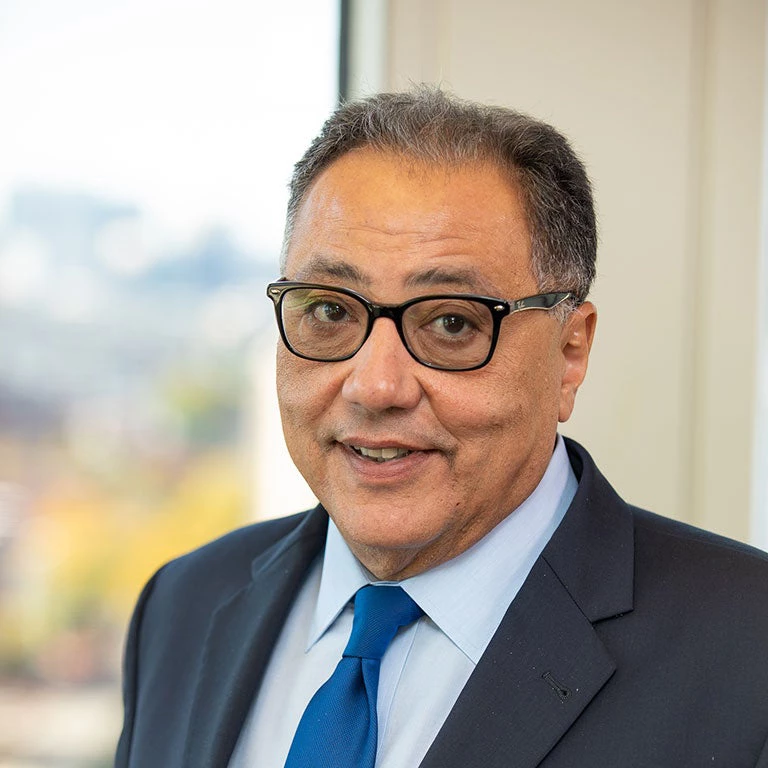 Tackling gender-based violence, once and for all.
Tackling gender-based violence, once and for all.
Today, I ask you to join me in commemorating the International Day for the Elimination of Violence Against Women. While the next 16 days of activism help remind us of the urgent action needed, gender-based violence (GBV) is a pandemic that needs our full attention every single day. It has mine. To me, empowering women and girls is not just the right thing to do, but it’s also the only way Africa can achieve its development goals.
Globally, it is estimated that almost 1 in 3 women has experienced some form of violence in her lifetime, and women in low- and lower-middle-income countries are disproportionately impacted. The COVID-19 pandemic has made things worse. It has contributed to more GBV with increases in domestic and sexual violence, child marriage, female genital mutilation (FGM), sexual exploitation and abuse due to economic stress, school closures and mobility restrictions. In several East African countries, there has been a 48% increase in GBV cases reported to the police or through hotlines since the pandemic started.
Child marriages on the continent have also risen during the pandemic. Even before the pandemic hit, Africa had the highest rate of child marriages in the world. Too many African girls got pregnant and married before their 18th birthday during the school shutdown and many of them have experienced abuse. While marriage under the age of 18 was outlawed in many countries, it has been challenging to enforce. Earlier this year, I was struck by a conversation I had with a young female activist in Malawi who talked about the challenge of breaking this social norm and her passion to help girls achieve their full potential.
So what’s driving these outcomes? Economic hardship, fragility, conflict and violence provide a breeding ground for interpersonal violence. We also know that deeply rooted social and cultural barriers, gender norms and socioeconomic constraints continue to play a significant role in hindering the highest potential women and girls can reach. Acceptance of domestic violence, even among women, is also high and serves as a reinforcing instrument of the cultures and norms that drive violence against women. On average, 44% of women in the region consider that a husband is justified to hit his wife, with numbers going close to 80% in some countries.
Climate change also leads to more violence against women and girls
The climate crisis is also disproportionately impacting women and girls, exacerbating the risk of violence. In periods of prolonged drought, for example, women and girls walk longer distances to obtain food and water for their families, making them vulnerable to sexual assault. Families may also resort to pulling girls out from school, early marriage or trafficking to cope with food and income insecurity.
All in all, the impacts and costs of GBV on human potential, health and well-being pose significant barriers to development. GBV is not only devastating for the survivors and their families, but it also involves significant social and economic costs. The estimated cost of GBV in medical expenses, lost income and productivity can amount to 2 to 4% of GDP.
The World Bank is determined to support efforts to end violence against women and girls
At the World Bank, we are committed to supporting African countries in their efforts to empower women and girls. Since the Africa Human Capital Plan launched in 2019, we have approved over $6 billion in investments that champion women and girls.
Tackling GBV requires that we collaborate across sectors, including addressing social norms, health care of survivors, safer school interventions, or the construction of safe, well-lit roads to schools, just to name a few. In Uganda, for example, we are supporting a COVID-19 emergency project that is strengthening the capacity of the GBV hotline and supporting a communication strategy about where to access GBV services, as well as providing essential medical supplies for comprehensive care of survivors.
Moreover, supporting our partner countries in pursuing legislative action and policy reforms that create better conditions for women and girls is one of the cornerstones in sustaining human capital growth. In Madagascar, for example, we have been supporting a stronger legal regime for the prevention and prosecution of GBV. I’m encouraged by the considerable progress many countries across the continent have made over the past years in addressing issues critical for women and girls’ empowerment. Sudan, for example, criminalized FGM in 2020, making it punishable by three years in jail. Mauritius has advanced efforts to put in place comprehensive legal and policy frameworks protecting girls from abuse and exploitation.
Equally important, however, is that we provide communities support to adapt and change behaviors to address deeply rooted social norms. We are doing this through programs involving the wider community, including men and local influencers such as religious and community leaders, to effectively change norms and behaviors around issues such as child marriage and GBV.
What’s next?
In December, I’m hopeful that a strong 20th replenishment of the next International Development Association (IDA20) — our fund for the poorest countries — will allow us to continue and increase action to combat GBV. This will include policy commitments to strengthen national policy frameworks for GBV prevention and response, support GBV-related services in health systems, and implement GBV prevention and response protocols as part of safe and inclusive educational institutions.
Today, I’m thinking about the victims of GBV. No one deserves to be violated or abused. My request in the weeks and months ahead is that we join forces and take bold actions so that GBV will be eliminated once and for all. I believe we can do this. Because, frankly, if we don’t empower women and girls, Africa’s development will not materialize.
Over the next 16 days of Activism, we will be featuring @WorldBankAfrica the work of gender activists who are dedicated to empowering women and girls in their countries.



Join the Conversation